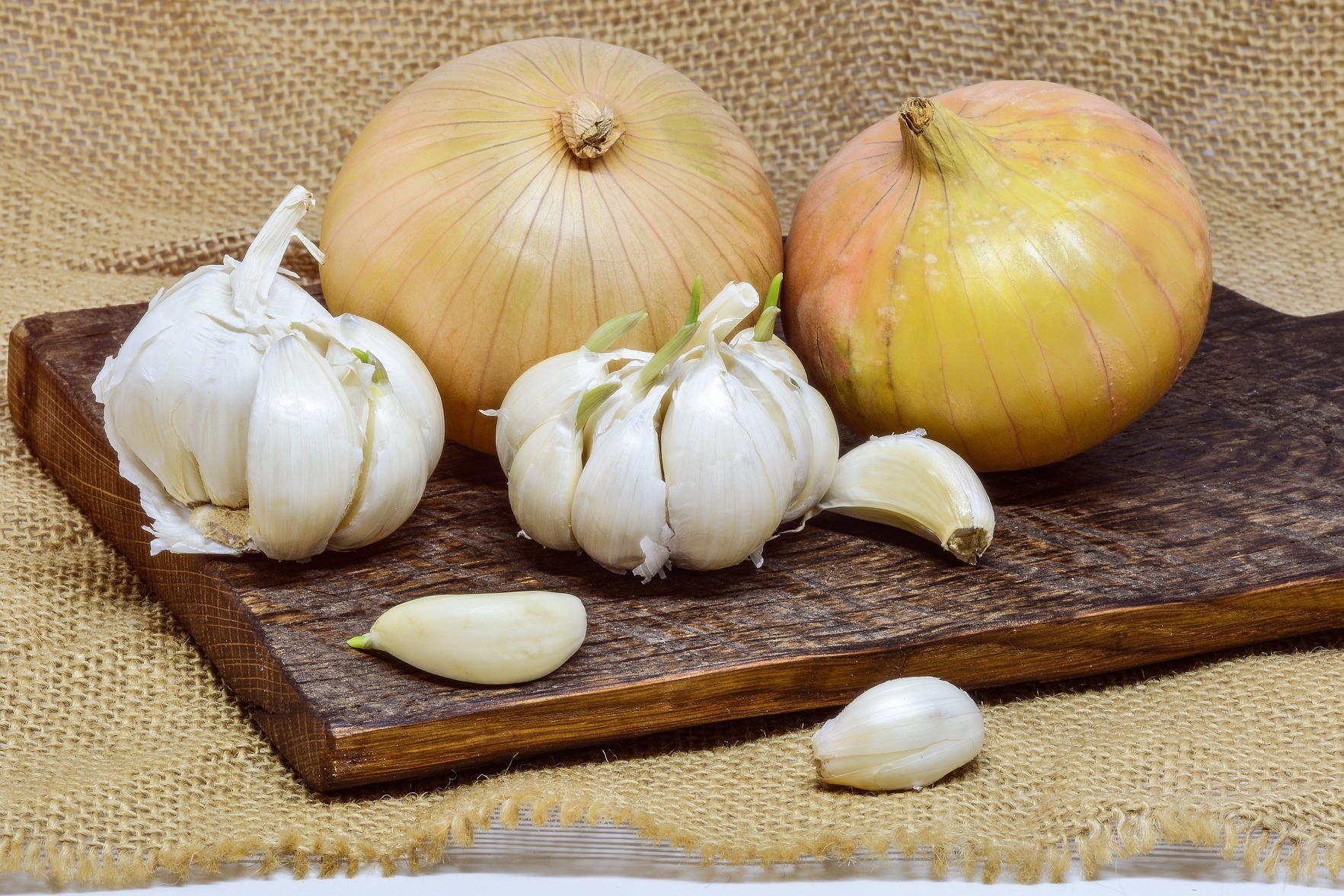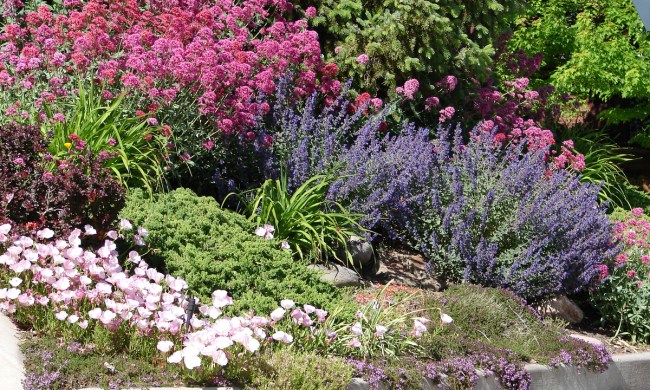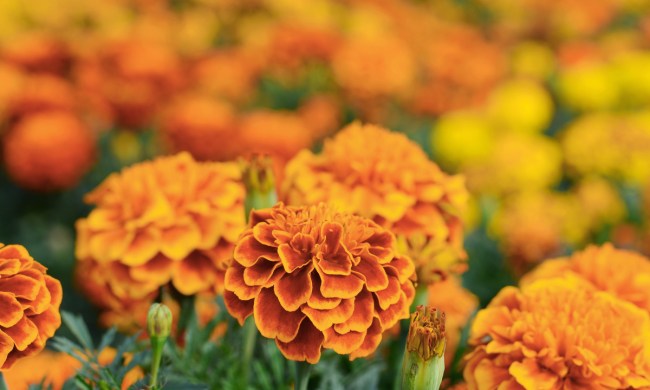Gardening is one of the best ways to beat stress and get in touch with nature. The problem is that cultivating plants sometimes leads to different kinds of stress: pests. When it comes to effective pest removal, gardeners have plenty of options at their disposal, from simply letting nature run its course to introducing predatory species that can help reduce pest pressure. Many choose to apply insecticides and pesticides, either organic or natural sprays or more heavy-duty chemical solutions. When pest pressure is highest, spraying may be the only option to save the plant. Here’s a more unconventional hack: using garlic as a pesticide.
While using one plant to keep pests away from another might seem unusual, this method has been used for quite some time! While garlic isn’t the only plant that can be used as a pesticide, it is one of the most popular, since it is easy to grow at home. If you want to learn more about how and why garlic as pesticide works, this is the guide for you.
Does garlic insecticide really work?
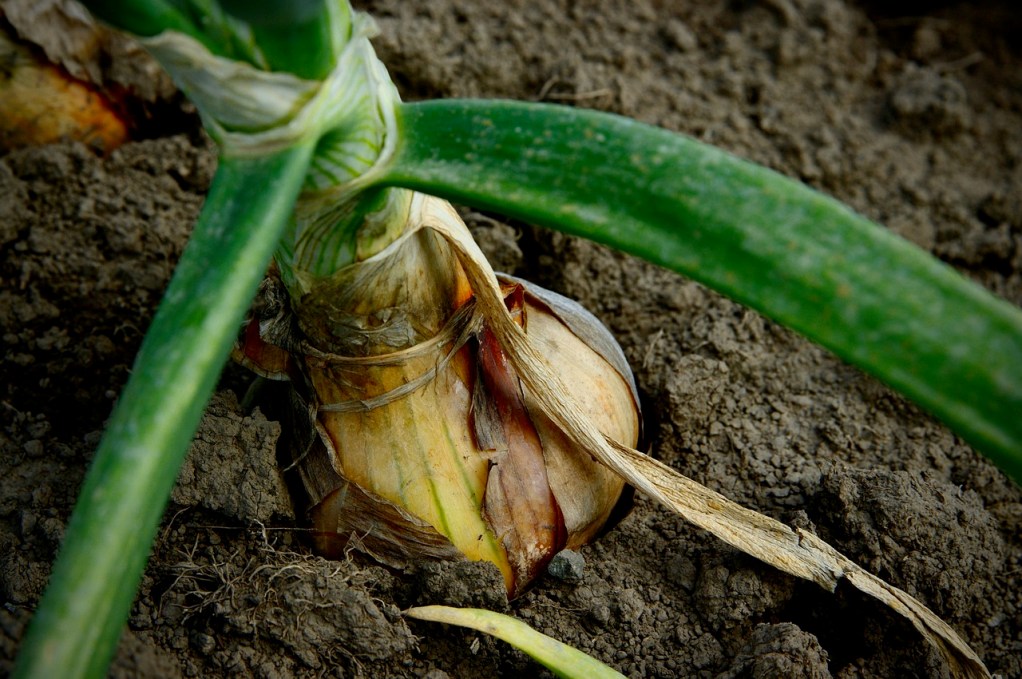
Scientific studies of garlic as an insecticide date back to the early 1970s, and anecdotal evidence goes back much further. Early research supported claims of garlic’s effectiveness as a non-toxic control for both larval and adult mosquitoes. Traditional agricultural experts and scientists agree that garlic spray can be an effective insect killer and deterrent.
Garlic essential oil and its naturally occurring constituents, diallyl disulfide and diallyl sulfide, are the keys to its effectiveness. In lab tests, these sulfur compounds interfere with the insect’s sensory receptors, causing disorientation and death at all life stages for a wide variety of flying and crawling bugs. In the garden, sensitive bugs tend to simply stay away from treated plants, but those that are present at the time of application will be killed.
Which pests does garlic spray keep away?

The irritating and disorienting sulfur compounds in garlic repel most flying and crawling insects. It’s especially helpful against annoying aphids, armyworms, beetles, caterpillars, cutworms, mites, mosquitoes, and flies.
Garlic repels many larger pests as well. If you have problems with deer, mice, moles, or rabbits in the garden, a few well-placed drops of garlic essential oil or a garlic-based repellent may help steer your unwanted garden visitors in a different direction.
How to use garlic insecticide

Garlic insecticide is available for purchase from garden suppliers, but you can try making your own. When using a commercially available garlic insecticide, follow the manufacturer’s handling and application instructions as shown on the product label.
As a non-targeting insecticide, garlic spray also has deterrent or harmful effects on beneficial insects and pollinators. For this reason, it is important to use it in a way that will minimize collateral damage. For instance, do not spray it if no pest insects are present. If damaging pests are present, spray in the early morning or later in the evening when the pests are present and active. Finally, target the pest’s hiding places by spraying on the undersides of leaves and along plant stems.
Homemade garlic bug spray recipe

Materials:
- Blender
- Cheesecloth
- Quart jar with a lid
Ingredients:
- 3 garlic bulbs
- 1 quart of water
- Liquid dish soap
Method:
- Separate the garlic cloves. Leave the skins on the cloves. Discard excess wrappers.
- Place all of the cloves into the blender and add a cup of water.
- Put the lid on the blender and pulse until the cloves are well chopped.
- Add the rest of the water and four drops of liquid dish soap.
- Put the lid on the blender and thoroughly liquefy the mixture.
- Filter the mixture through the cheesecloth to remove all non-liquid particles, then transfer the mixture to the quart jar.
The resulting mixture is concentrated. To use the spray, dilute one part concentrate with 10 parts water. Apply on or around plants with a spray bottle.
The downside of using garlic spray

While garlic is effective against many annoying and damaging bugs, it does present some challenges. Most notably, those with smaller yards and gardens will immediately be aware of the strong aroma after application. Even if that’s okay for you, your neighbors may object.
Another possible mark against garlic is that its effectiveness is reduced during rainy spells. While that’s true of any topical, non-systemic insecticide, it still bears mentioning here. If a storm is coming, it’s best to apply the treatment after the bad weather passes.
Also, as effective as garlic may be against many different kinds of bugs, some species will remain out of reach. Active borers, leaf miners, ants, and other pests that live inside the plant tissue or below ground are not really susceptible to the volatile compounds due to the physical barriers involved. In these cases, other treatments would be better.
Planting garlic as a companion plant
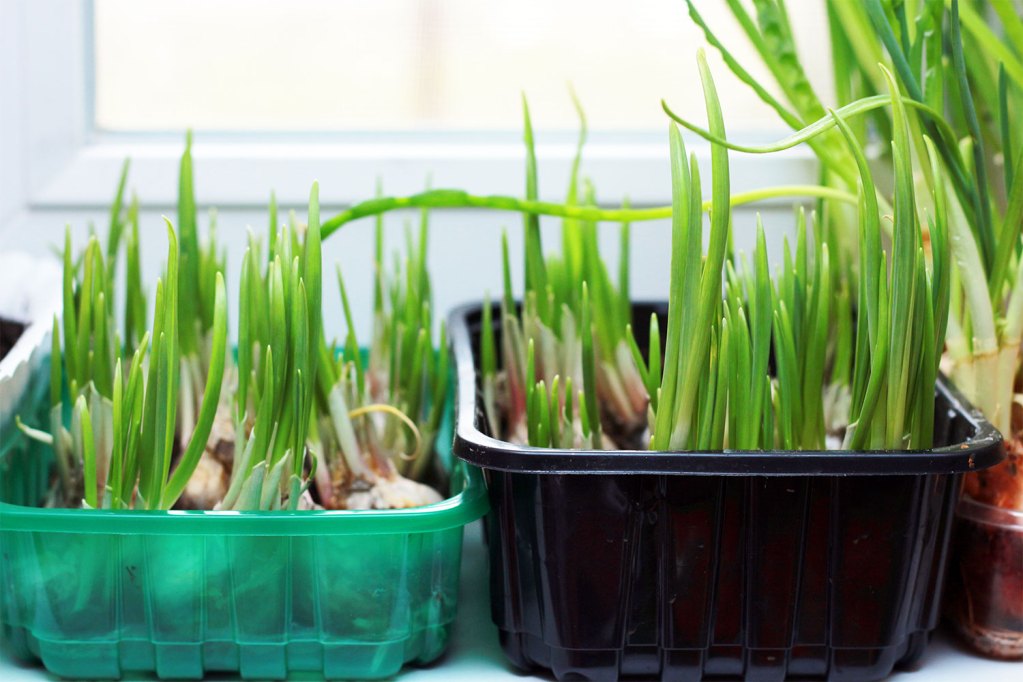
Even before DIY-ing your own garlic insecticide, consider planting it in your garden to repel pests. As long as you give it full sun, garlic is a relatively easy-going and space-efficient plant to grow in your outdoor space. Its insect-repellent properties certainly make it an appealing crop to grow, but you just have to be mindful of what plants can thrive alongside it.
Some plants that can do well with garlic include cabbage, carrots, peppers, dill, and kale. Do note, however, that garlic can stunt the growth of plants such as asparagus, legumes, and beans, so it won’t work as an effective companion plant for these crops.
Is garlic the strongest natural pest control spray?

Garlic is not the strongest natural pest control, but it is still quite effective. When it comes to raw strength and broad protection, neem oil is the natural pest control solution to turn to. However, garlic has benefits that neem oil does not. While it may not protect against quite as many pests, garlic spray is simple and easy to make at home. Whether you grow the garlic yourself or purchase some from your local grocery store, any gardener can make garlic spray without much fuss.
Additionally, garlic spray can be combined with other plants that have pest repellent properties to increase its strength. Onions, spicy peppers, and even some herbs and flowers can be mixed for a stronger pest control spray.
At the end of the day, it’s worth giving garlic spray a shot to reduce pest issues if the pros outweigh the cons for you. If you’re in search of a natural pest management method, you might want to give this garlicky solution a shot.
